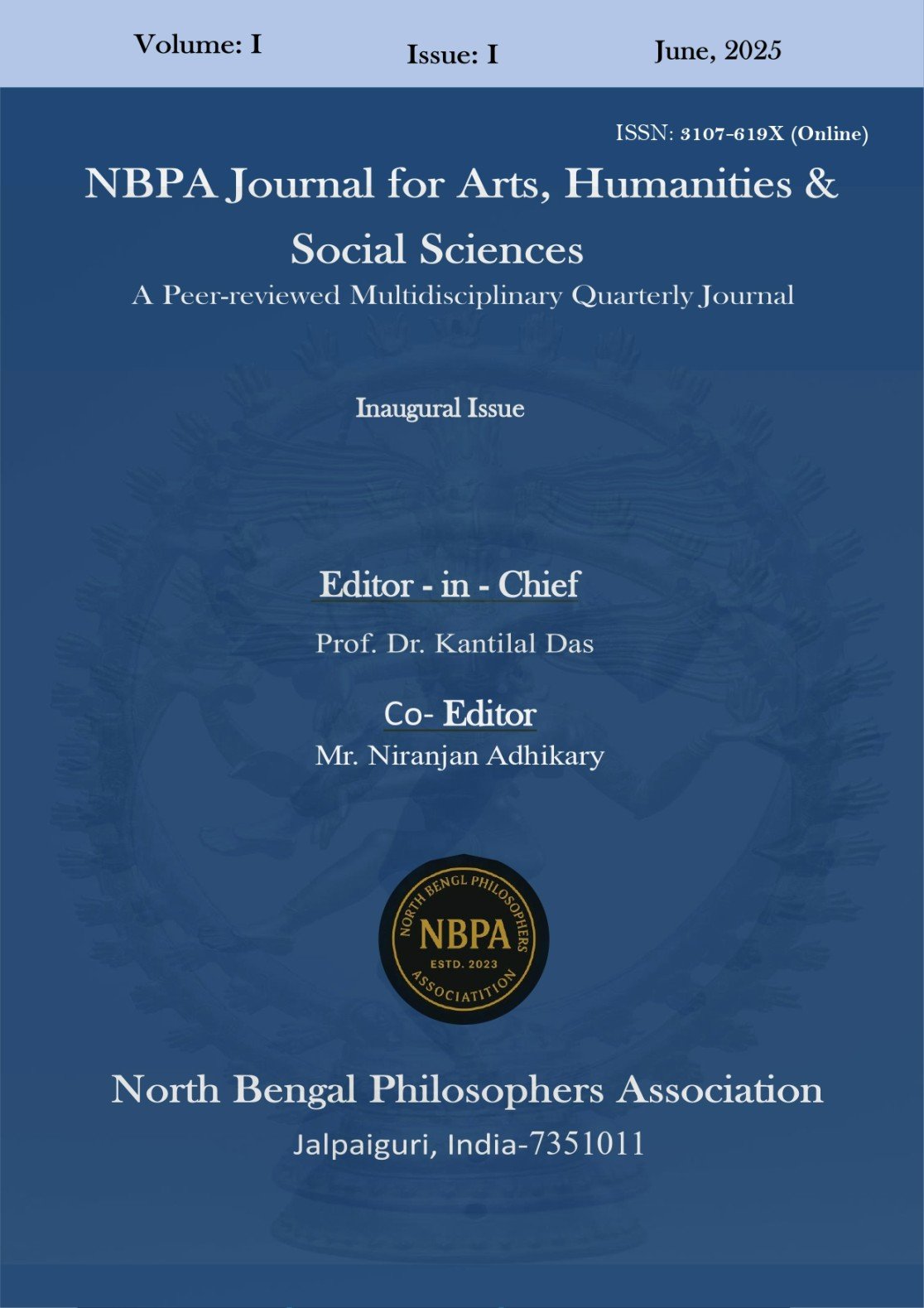Environmental Feminism: Intersections of Gender, Nature, and Justice – An In-Depth Academic Analysis
DOI:
https://doi.org/10.65842/nbpa.v1.i1.009Keywords:
Ecofeminism, Environmental Feminism, Women, Natural world, post structuralistAbstract
Environmental feminism, or ecofeminism, is a multifaceted and interdisciplinary framework that critically examines the profound and often overlooked connections between the domination of women and the exploitation of the natural world. This extensive academic article undertakes a comprehensive exploration of ecofeminism, tracing its intellectual genesis in the late 20th century and meticulously dissecting its diverse theoretical manifestations, including liberal, cultural, socialist, and spiritual ecofeminism, as well as more contemporary intersectional and post-structuralist approaches. It meticulously analyses the foundational arguments positing that patriarchal ideologies, characterized by hierarchical dualisms and instrumental rationality, underpin both gender oppression and ecological degradation. The article critically engages with the significant scholarly debates surrounding ecofeminism, particularly the persistent critique of essentialism and the subsequent imperative for intersectional analysis to account for the heterogeneous experiences of women across various axes of identity, such as race, class, sexuality, and geographical location. Furthermore, it illuminates the practical implications of ecofeminist thought, showcasing its transformative role in environmental activism, policy advocacy, and the pursuit of holistic social and ecological justice movements globally. By synthesizing historical context, theoretical nuances, and practical applications, this article underscores the enduring relevance and critical urgency of environmental feminism in addressing the intertwined crises of social inequality and ecological collapse in the Anthropocene.
References
Adams, Carol J. (1991). The Sexual Politics of Meat. Continuum, New York.
Birkeland, Janis. (1993). Ecofeminism: Linking the Fate of Women and Nature. Environmental Ethics, vol. 15, no. 4, Denton, TX.
Carson, Rachel. (1962). Silent Spring. Houghton Mifflin, Boston.
Chen, Sherry. (2009). The Global Environmental Crisis: A Gender Perspective. Routledge, London.
Crenshaw, Kimberlé W. (1989). Demarginalizing the Intersection of Race and Sex: A Black Feminist Critique of Antidiscrimination Doctrine, Feminist Theory and Antiracist Politics. University of Chicago Legal Forum, vol. 1989, no. 1, Chicago.
D’Eaubonne, Françoise. (1974). Le Féminisme ou la Mort. Pierre Horay, Paris.
Gaard, Greta. (1993). Ecofeminism and Wilderness. Environmental Ethics, vol. 15, no. 1, Denton, TX.
Gaard, Greta. (2011). Ecofeminism Revisited: Rejecting Essentialism and Re-Placing Species in Feminist Environmental Ethics. Environmental Ethics, vol. 33, no. 1, Denton, TX.
Griffin, Susan. (1978). Woman and Nature: The Roaring Inside Her. Harper Row, New York.
Haraway, Donna J. (1991). Simians, Cyborgs, and Women: The Reinvention of Nature. Routledge, New York.
Khanom, Dr. Razia. (2022). Moral Evolution of Environment and Ecofeminism. Prantika, Dhaka.
King, Ynestra. (1983). The Ecofeminist Imperative. In L. Caldecott , S. Leland (Eds.), Reclaim the Earth: Women Artists for Ecology. The Women’s Press, London.
Maathai, Wangari. (2007). Unbowed: A Memoir. Anchor Books, New York.
Mellor, Mary. (1997). Feminism and Ecology. New York University Press, New York.
Merchant, Carolyn. (1980). The Death of Nature: Women, Ecology, and the Scientific Revolution. Harper Row, San Francisco.
Mies, Maria. (1986). Patriarchy and Accumulation on a World Scale: Women in the International Division of Labour. Zed Books, London.
Mies, Maria, Shiva, Vandana. (1993). Ecofeminism. Zed Books, London.
Plumwood, Val. (1993). Feminism and the Mastery of Nature. Routledge, London.
Ruether, Rosemary Radford. (1992). Gaia and God: An Ecofeminist Theology of Earth Healing. HarperSanFrancisco, San Francisco.
Shiva, Vandana. (1989). Staying Alive: Women, Ecology and Development. Zed Books, London.
Starhawk. (1989). The Spiral Dance: A Rebirth of the Ancient Religion of the Great Goddess. HarperSanFrancisco, San Francisco.
Warren, Karen J. (1990). The Power and the Promise of Ecological Feminism. Environmental Ethics, vol. 12, no. 2, Denton, TX.
Warren, Karen J. (2000). Ecofeminist Philosophy: A Western Perspective on What It Is and Why It Matters. Rowman Littlefield Publishers, Lanham, MD.
White, Lynn. (1967). The Historical Roots of Our Ecologic Crisis. Science, vol. 155, no. 3767, Washington, D.C.
Waring, Marilyn. (1988). If Women Counted: A New Feminist Economics. Harper Row, New York.

Downloads
Published
Issue
Section
License
Copyright (c) 2025 Dr. Bipasha Joardar (Author)

This work is licensed under a Creative Commons Attribution-NonCommercial-NoDerivatives 4.0 International License.



